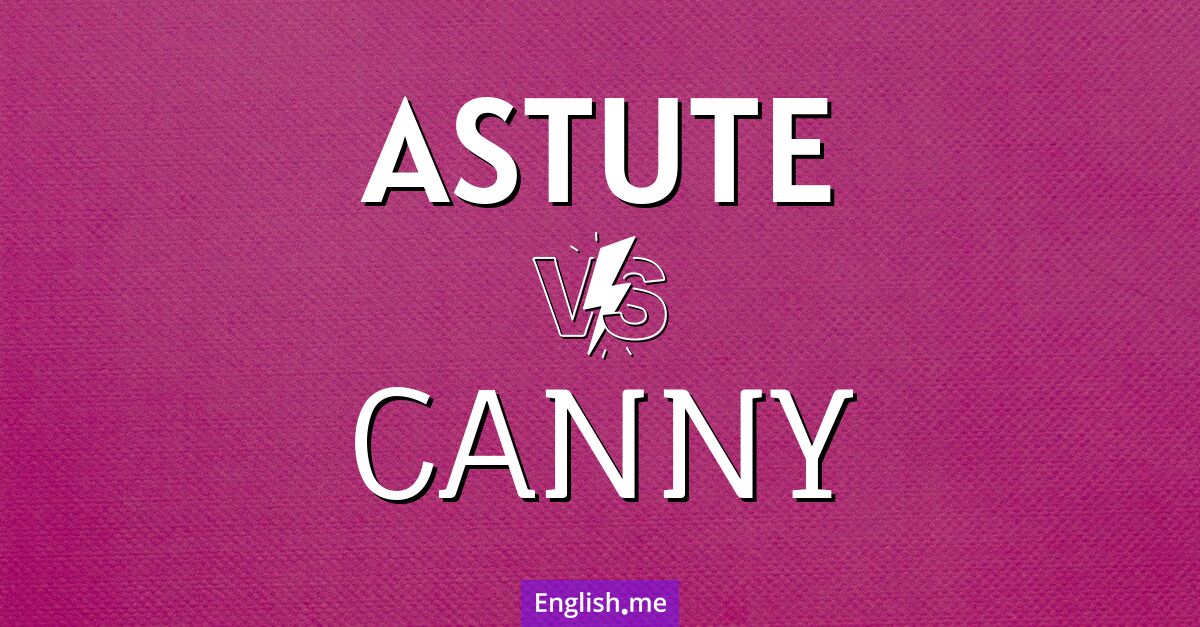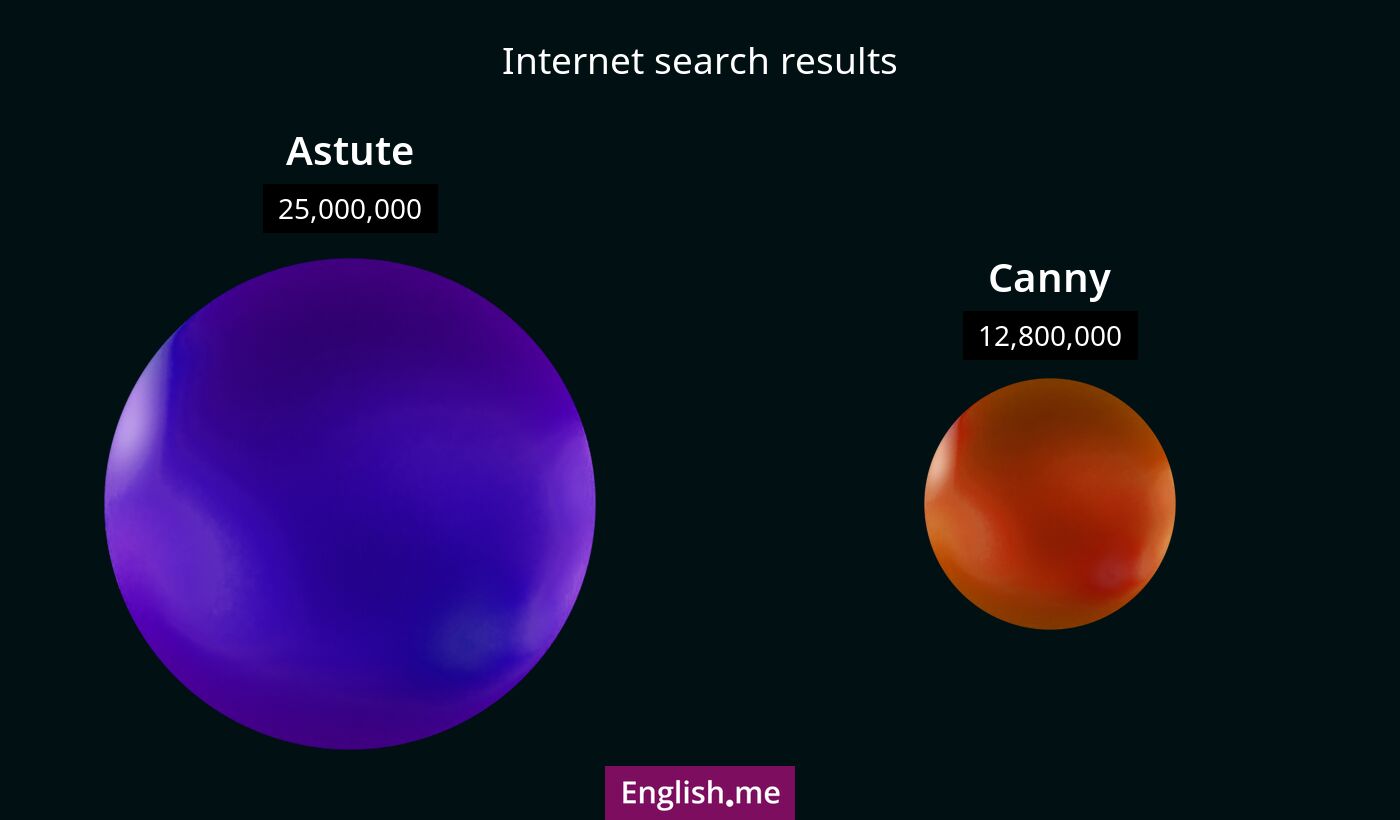"Astute" vs. "canny": a clever comparison
Reviewed and edited by  Lloyd Cooper 01/12/2024, 01:30
Lloyd Cooper 01/12/2024, 01:30
English.me team member

 What is similar?
What is similar?
Both "astute" and "canny" describe someone who is intelligent, perceptive, and has sharp judgment. They both imply shrewdness and the ability to understand situations quickly.
 What is different?
What is different?
"Astute" emphasizes keen insight and perceptiveness, often in understanding complex or difficult situations, while "canny" often implies cleverness coupled with caution and pragmatism, especially in business or financial matters. "Canny" can also suggest being thrifty or frugal.
 Which one is more common?
Which one is more common?

 Examples of usage
Examples of usage
Astute- She was astute in recognizing the opportunity that others missed.
- The politician was known for his astute understanding of public opinion.
- Her astute observations about the market changes proved to be correct.
- The businessman made a canny move by investing early.
- His canny ability to negotiate saved the company thousands.
- She was canny in her purchases, always finding the best deals.

 English
English español
español française
française italiano
italiano deutsche
deutsche 日本語
日本語 polski
polski česky
česky svenska
svenska Türkçe
Türkçe Nederlands
Nederlands